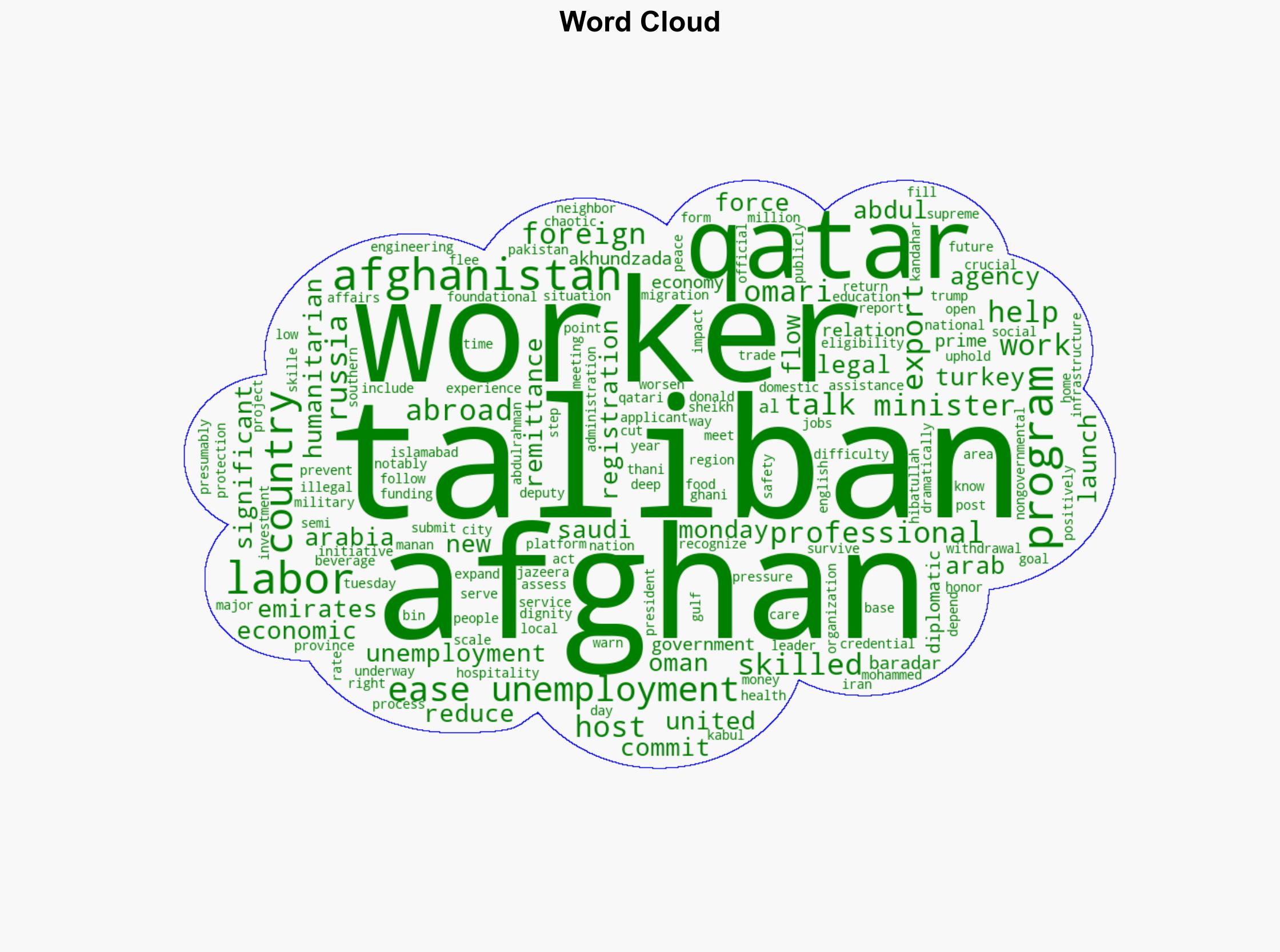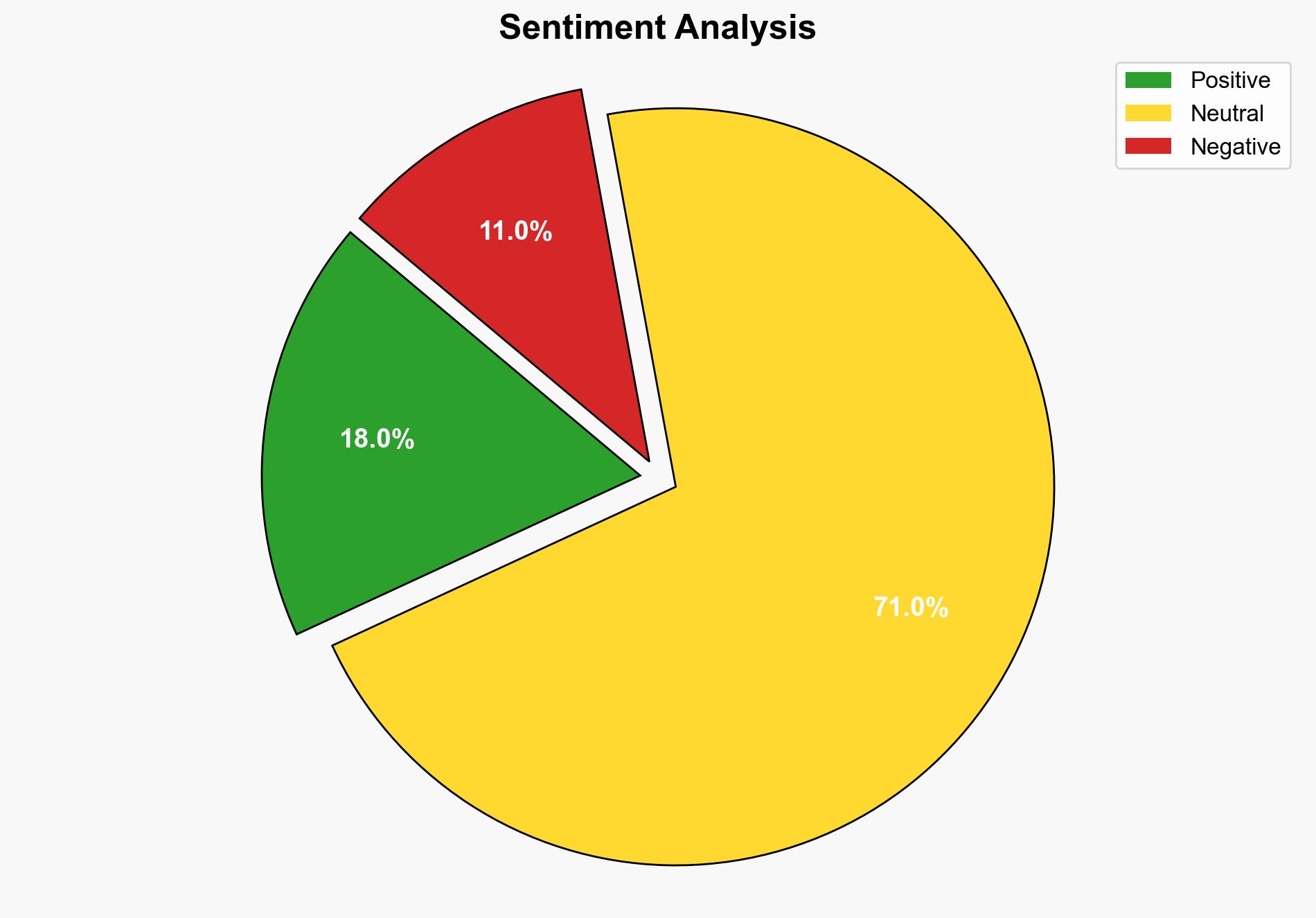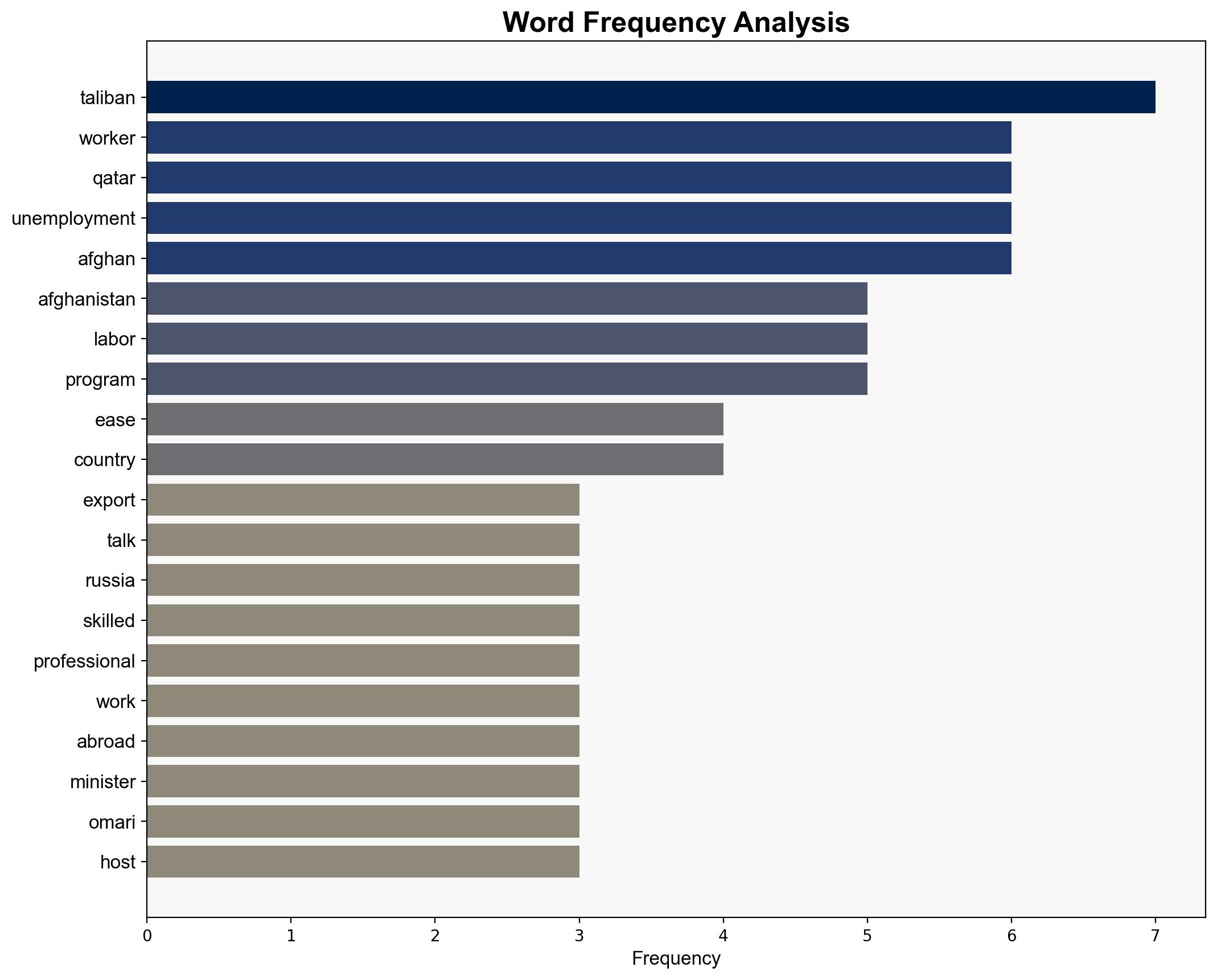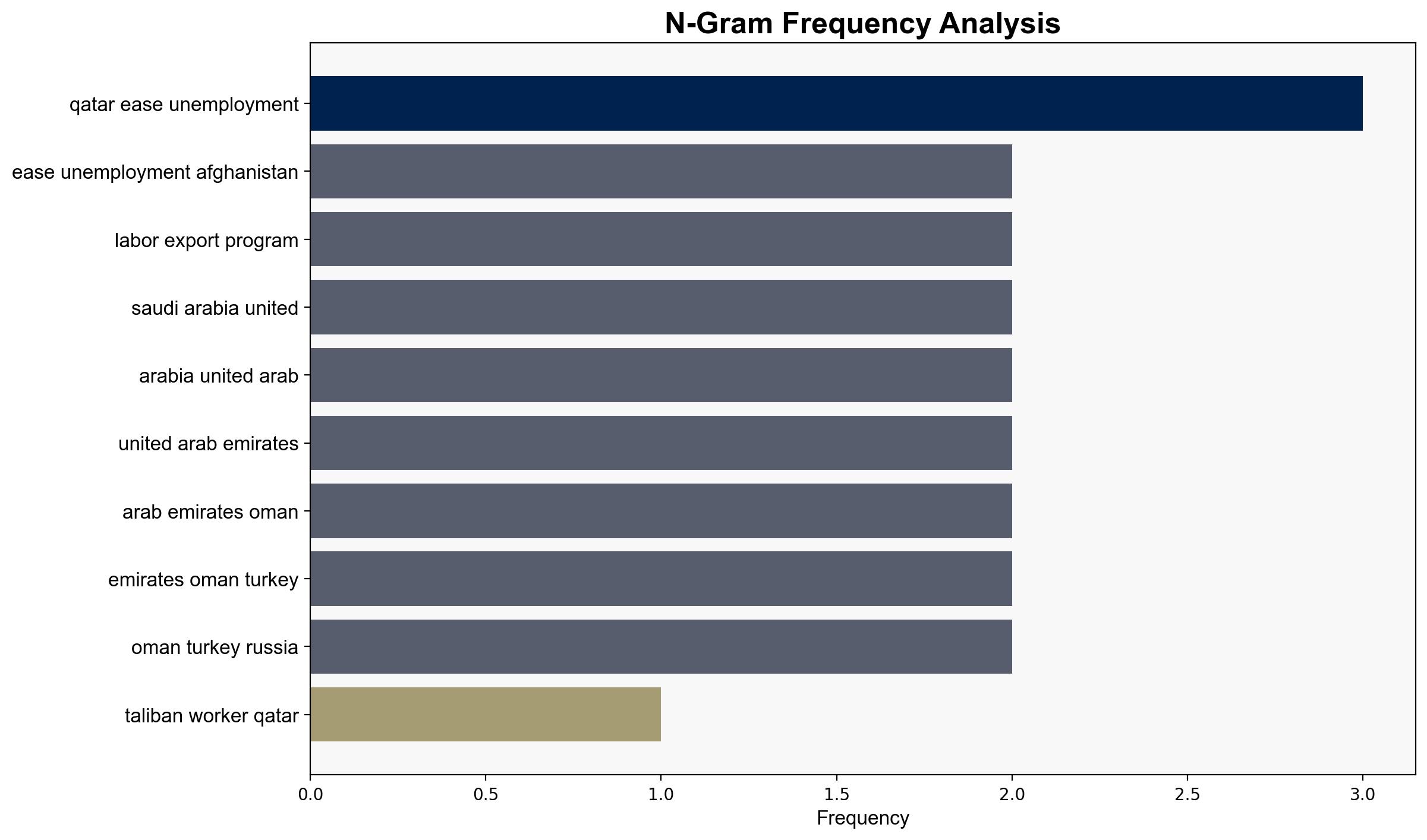The Taliban are sending workers to Qatar to ease unemployment in Afghanistan – ABC News
Published on: 2025-07-29
Intelligence Report: The Taliban are sending workers to Qatar to ease unemployment in Afghanistan – ABC News
1. BLUF (Bottom Line Up Front)
The initiative by the Taliban to send Afghan workers to Qatar is primarily aimed at addressing domestic unemployment and economic challenges. The most supported hypothesis suggests that this labor export program is a strategic move to stabilize Afghanistan’s economy through remittances. Confidence Level: Moderate. Recommended action includes monitoring the implementation of this program and its impact on regional labor markets and Afghan domestic stability.
2. Competing Hypotheses
1. **Hypothesis A**: The Taliban’s labor export program is a genuine effort to alleviate unemployment and stimulate the Afghan economy through remittances.
– **Supporting Evidence**: The program targets skilled professionals, indicating a focus on sustainable economic benefits. Talks with multiple countries suggest a broad strategic plan.
2. **Hypothesis B**: The program is a facade for other strategic objectives, such as gaining international legitimacy or reducing internal dissent by exporting potential dissidents.
– **Supporting Evidence**: The involvement of countries with complex geopolitical interests, such as Russia and Turkey, and the Taliban’s need for international recognition could imply ulterior motives.
Using ACH 2.0, Hypothesis A is better supported due to the explicit focus on economic benefits and the structured approach to engaging multiple countries.
3. Key Assumptions and Red Flags
– **Assumptions**: The program will be effectively implemented and will result in significant remittances. Countries involved will maintain stable relations with Afghanistan.
– **Red Flags**: Lack of transparency in the selection process for workers, potential exploitation of workers abroad, and the Taliban’s historical lack of governance capacity.
– **Missing Data**: Detailed agreements with host countries and the legal framework for worker protection.
4. Implications and Strategic Risks
– **Economic Implications**: Potential boost in remittances could stabilize the Afghan economy temporarily. However, reliance on external labor markets poses risks if geopolitical tensions rise.
– **Geopolitical Risks**: Engagement with countries like Russia and Turkey could alter regional power dynamics, potentially affecting alliances and regional stability.
– **Social Risks**: Exporting skilled labor might lead to a domestic skills gap, impacting long-term economic development.
5. Recommendations and Outlook
- Monitor the implementation and outcomes of the labor export program to assess its impact on Afghanistan’s economy and regional labor markets.
- Engage with international organizations to ensure the protection of Afghan workers’ rights abroad.
- Scenario Projections:
- **Best Case**: Successful implementation leads to economic stabilization and improved international relations.
- **Worst Case**: Program fails, leading to increased domestic unrest and strained international relations.
- **Most Likely**: Partial success with mixed economic benefits and ongoing geopolitical complexities.
6. Key Individuals and Entities
– Abdul Manan Omari
– Abdul Ghani Baradar
– Hibatullah Akhundzada
– Sheikh Mohammed bin Abdulrahman Al Thani
7. Thematic Tags
national security threats, regional focus, economic stabilization, labor migration





